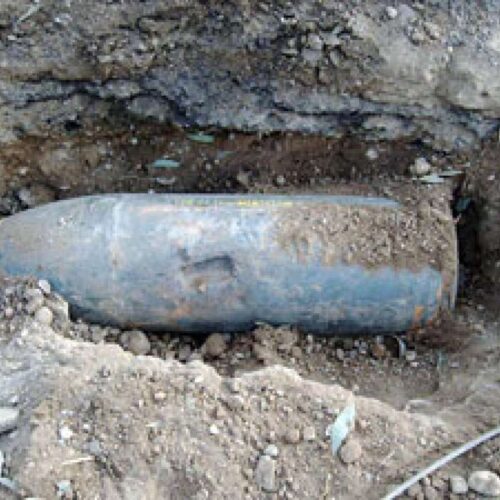Introduction
Despite unprecedented budgetary pressures, a recently passed House appropriations bill would both increase the overall defense budget and boost funds for a controversial Pentagon organization combatting roadside bombs that was the subject of an iWatch News investigation.
That agency, the Joint Improvised Explosive Device Defeat Organization, or JIEDDO, has since 2006 been given more than $21 billion dollars to spend on combatting improvised explosive devices and now employs 1,800 people. But it has not managed to substantially reduce IED-related casualties among U.S. troops in Iraq or Afghanistan. JIEDDO’s troubled history was the subject of a March story by iWatch News and McClatchy newspapers.
IED attacks kill or maim hundreds of American soldiers each year. As of May, the most recent month for which IED figures were available, a total of 2,894 U.S. service members have been killed and another 27,502 injured by roadside bombs in Iraq and Afghanistan. After a short-lived decline in IED casualties, the month of May saw 18 soldiers killed by IED attacks in Afghanistan, matching the total for May 2010.
Despite the dispiriting results, last Friday the House passed a defense appropriations bill for fiscal year 2012 that awarded another $2.798 billion to JIEDDO – the exact amount requested by the Obama administration. That’s $5 million more than the troubled organization got in the current fiscal year. The 2012 bill passed by the House gave the Defense Department a total of $649 billion.
“The politics of cutting JIEDDO are not very good in the Senate and in the House,” explained Travis Sharp, an analyst at the Center for a New American Security, in a phone interview.
Sharp predicted that the Senate might well support a funding boost for JIEDDO, despite a June Government Accountability Office report finding that JIEDDO’s intelligence, surveillance, and reconnaissance systems may be duplicating the efforts of other branches of the military. With soldiers deployed in both Iraq and Afghanistan, Sharp said, senators “are not going to be too keen on cutting funding” for an organization that is working to prevent IED deaths and injuries.
In an email to iWatch News, a staffer for the Senate Appropriations Defense Subcommittee said the panel “remains extremely supportive of JIEDDO and its efforts to combat IEDs.” The aide promised, however, that the subcommittee would closely analyze JIEDDO’s programs.
That is likely to be how lawmakers aim to secure a return on the taxpayers’ investment in the organization, Sharp said. The “honeymoon” for JIEDDO — which started as “an institution with enormous political capital within the Pentagon” — is over, he asserted. But “when the politics or the national security rationale do not justify making any sort of budgetary changes, he said, “Congress will assert itself through oversight and through reporting requirements.”
In that regard, last year lawmakers asked GAO whether JIEDDO devices could be used for disarming or safely disposing of landmines left over in former war zones. While the study found only “6 out of a total 150 technologies that might be used for humanitarian demining,” legislators hope other JIEDDO devices could find wider applications off of the battlefield.
This repurposing of Pentagon technology has a history of success that members of Congress can cite. Famously, the Internet was a byproduct of an information-sharing program created by the Defense Advanced Research Projects Agency. “They sort of stumbled onto the Internet,” Sharp said. “That wasn’t what they were trying to find.”
The money for failed devices or technology that was found to be more useful by other branches of the military has also been either cut or reallocated, JIEDDO said in an April press release. For example, when its Copperhead IED detector didn’t live up to expectations, the organization alerted Congress. JIEDDO requested that most of Copperhead’s $329 million appropriation be redirected to the organization’s general budget. But Congress instead took the allocation back from the organization, JIEDDO Communications Branch Chief Irene Smith said in a phone interview.
The problem lawmakers are likely to encounter in their continued oversight of the organization is the lack of clear measures for evaluating the impact of its various programs. “It’s very difficult to say whether or not JIEDDO is doing a good job because the expectations for the organization change as rapidly as the battlefield situations in Iraq and Afghanistan,” Stark said. These unclear benchmarks increase the “chance that there can be waste, mismanagement, and a failed response to mission requirements” and make vigorous oversight all the more important.
Further complicating that task is a new rule from the NATO-led International Security Assistance Force in Afghanistan, which has changed the way in which two of the clearest metrics are reported, said JIEDO’s chief of strategic communications, Col. Stephanie Holcomb, in a phone call. IED attack numbers and the rates at which the bombs are safely detected will now be released only on a quarterly basis, making month-on-month comparisons more difficult for outside watchdogs. Monthly figures will be classified from now on, Holcombe said. The next release is due out in mid-July.
While deficit hawks may eventually try to reign in JIEDDO, Sharp said the Pentagon will likely want to keep the few useful technologies and limited IED detection and detonation capabilities JIEDDO has created. That’s because IEDs – which first came into widespread battlefield use in Iraq and Afghanistan – are increasingly being used by terrorist groups worldwide. “There were about 400 IED incidents every month in 2010 with Pakistan, India, Somalia and Thailand topping the list,” notes National Defense magazine.
If keeping alive what critics consider an ineffective organization is necessary to preserve the limited gains the U.S. military has made in the battle against IEDs, that may be a small price to pay, Sharp said. “In the strange world of U.S. defense budgets, two to three billion [dollars] is small potatoes.”
Read more in National Security
National Security
Army did not properly test more than 5 million bullet-proof plates
National Security
Congress urged to put Coast Guard on short leash with budget-busting Deepwater project
Project to buy or modernize ships, planes may already be $5 billion over budget


Join the conversation
Show Comments